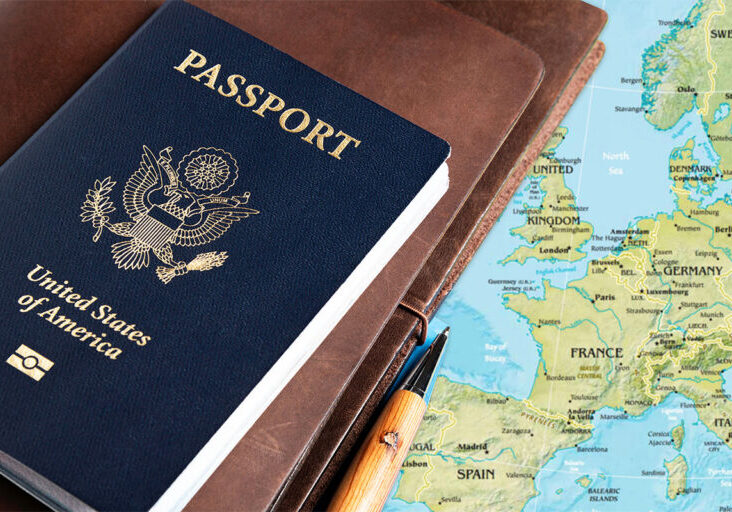The Hidden Risks of Global Business: What Companies Should Know About Compliance
Summary: Regulations are changing fast, and enforcement is in the headlines regularly. From I-9 audits to immigration enforcement, companies must act proactively to safeguard their operations and address the risks of global business compliance. In this article, Aprio explains how global mobility teams, internal audits, and other protective measures can safeguard your business.
If you are preparing to expand your business abroad, you’re about to open the door to a host of exciting new growth opportunities. But with that excitement comes a new set of compliance complexities.
Businesses that operate on a global scale must navigate a variety of rules and regulations, from labor and tax laws to immigration rules and even environmental standards. If you make a compliance misstep and fail to adhere to the proper regulatory standards, you could endure reputational harm, receive financial penalties, and in extreme cases be subjected to federal raids. The bottom line is clear: compliance is a strategic necessity for international businesses.
In this article, we take a closer look at how compliance could impact your global operations, key pitfalls to avoid, and how a global mobility team can support your business’s compliance efforts.

Why compliance matters in global operations
As a business leader, you’re likely already familiar with domestic laws and industry standards central to U.S. regulatory compliance. Every international jurisdiction and locality has its own rules and regulations that govern corporate activities as well. If you already have or are preparing to have a globally mobile workforce, your compliance obligations will span a range of categories:
- Labor laws: These ensure that your business is distributing fair pay, creating safe working conditions, and adhering to local employment rules.
- Immigration regulations: These laws have specific processes businesses should follow when managing visas, work permits, and right-to-work documentation.
- Environmental standards: These laws often focus on ensuring companies meet local sustainability and environmental protection requirements.
- Tax obligations: International tax laws play a role in tracking where employees create tax liabilities (for both the individuals and the companies they work for).
If you fail to comply with the appropriate rules and regulations in the countries where you operate, you will likely be subject to steep penalties. Add to that damaged brand reputation, disrupted operations, and long-term regulatory scrutiny, and non-compliance is something companies operating abroad want to avoid.
The strategic role of global mobility teams in regulatory compliance
You don’t have to manage global compliance on your own. For many multinational businesses with workforces abroad, global mobility teams have been a front-line solution to reducing risk and maintaining compliance in the face of complex, ever-evolving rules and regulations.
You may be surprised to discover that global mobility professionals are responsible for more than just moving employees across borders. The right team can help your business:
- Coordinate with your internal HR, legal, and finance teams to submit payroll, oversee benefits administration, and manage necessary tax obligations in both home and host countries.
- Manage relocations while helping ensure you meet proper legal and regulatory requirements.
Aside from these duties, many global mobility teams take responsibility for updating their clients’ documentation, tracking assignments, and helping them prepare for regulatory audits. When global mobility teams take a long-term, proactive approach to serving their clients, they become a company’s first line of defense against compliance failures, which reduces risk across the board.
Therefore, when you’re researching and vetting global mobility providers, it’s important to look for teams that can support your talent strategy and business continuity plans, in addition to helping you minimize risk.

Lessons learned: How multinational companies can build a culture of compliance
Enforcement activity is on the rise, particularly in the immigration space. As you may be aware, the recently passed One Big Beautiful Bill (OBBB) included funding for Immigration and Customs Enforcement (ICE). We expect that this funding increase will result in more workplace enforcement actions, including I-9 audits. While ICE routinely performs audits, the number has historically shifted by presidential administration — specifically, I-9 audits averaged about 3,500 per year under the Obama and Biden administrations and were closer to 6,500 under the first Trump administration. With this new funding in place, all businesses should expect the pace of enforcement to accelerate.
So, what does this mean in practice? Here are a few key factors your business should keep in mind:
- Audit triggers: The government may choose some employers for audits randomly (high-risk industries include construction, agriculture, and hospitality) or identify them based on specific complaints.
- What to expect during an audit: With ICE or U.S. Homeland Security Investigations (HSI), employers will typically receive a “Notice of Inspection,” which gives them 3 business days (although sometimes up to 7) to produce I-9 forms, supporting documentation, payroll records, and e-verify paperwork for their employees.
- Correction window: Employers may fix certain technical errors during this short timeframe, but serious violations (like missing forms) may result in fines that can reach thousands of dollars per instance.
- Best defense: Employers should consider performing regular, internal I-9 audits to increase their chances of fixing issues early and training their HR staff to manage future issues; this often reduces employers’ chances of incurring potential fines.
It’s essential for your global mobility team and internal HR and legal teams to work cross-functionally to manage assignments and make sure your employment authorization processes are airtight.
Final thoughts and moving forward with confidence
Today, our global business landscape is more connected than ever, and compliance challenges are inevitable. However, when you implement strong governance and proactive global mobility strategies, you can better protect your people, your business’ reputation, and your bottom line. What’s more, when you invest in compliance and empower your global mobility team, you reduce risk, build resilience, and instill both internal and external trust that will only fuel your business’s long-term success.
Stay informed with Aprio.
Get industry news and leading insights delivered straight to your inbox.
How we can help
If you are expanding globally and interested in strengthening your compliance program, Aprio’s Global Mobility and Employment Law advisors can help.


